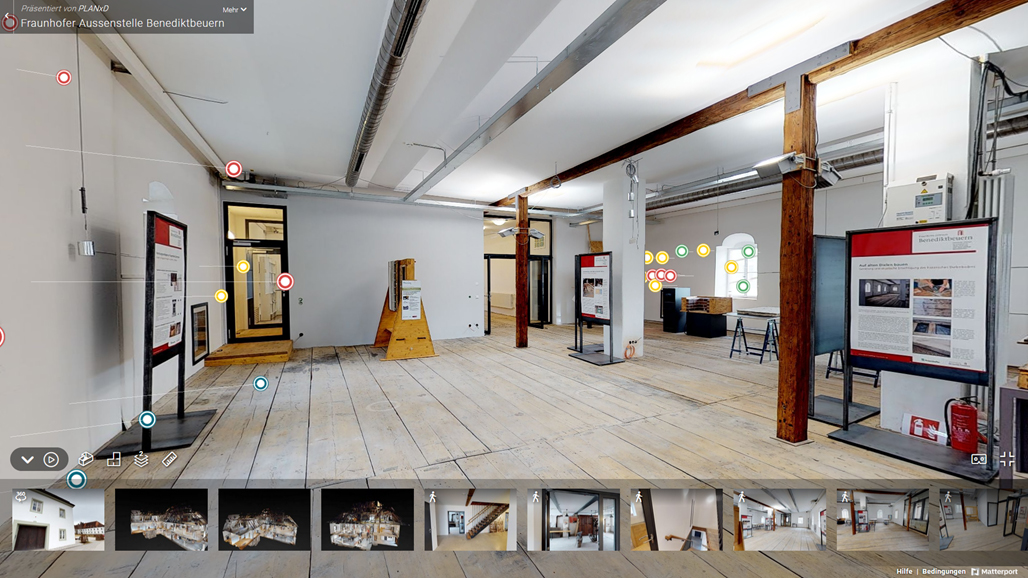Advanced training program for renovating old buildings and preserving historical monuments
Background
Renovating old buildings not only helps to save CO2 but also to preserve the urban landscape and historical landmarks, thus making a key contribution to architectural culture. For political and financial reasons, old buildings are not always renovated consistently. This wrong thinking of politics and the economy can be corrected by imparting the necessary knowledge.
Against this background, the Fraunhofer Center for Conservation and Energy Performance of Historic Buildings Benediktbeuern was founded in 2010 as a cooperation between the Fraunhofer Institute for Building Physics IBP and the Fraunhofer Information Center for Regional Planning and Building Construction IRB. Research, demonstration, knowledge acquisition and knowledge transfer are the four pillars on which the center is built.
Since 2018, the focus on the aspect of knowledge transfer has increased, among other things through organization of a seminar series entitled “Bauphysik in der Denkmalpflege” (building physics in heritage conservation). The success of this initiative convinced the project sponsors to formulate a comprehensive concept for a structured training and continuing education program that would ensure its continued existence in the future.
Target
QualiBene is primarily aimed at engineers, architects and craftsmen with proven expertise in the field of heritage conservation and restoration who wish to qualify as generalists in renovating old buildings.
The objective of the program is to train people to become generalists in renovating old buildings who, based on sound research knowledge, will favor sustainable options and techniques in everyday building work.
The project particularly focuses on the topics of sustainability in conjunction with heritage conservation and energy efficiency, the concept of damage prevention rather than damage repair through structural improvements, and on coordinated measures on buildings, which will be dealt with in the advanced training modules.
Thematically, the program thus offers the opportunity to promote the social and economic discourse on sustainable solutions to reduce the CO2 footprint of existing buildings, while taking architectural culture into account at the same time.
Against this backdrop, the program's teaching format is inspired by the principles of sustainable education, which is one of the main objectives of UNESCO's Sustainable Development Goals (SDGs).
By transferring research results to practice, QualiBene aims to complement the services offered by colleges and universities and to facilitate partnerships in both the academic and business worlds.
The program courses take a practical approach, are based on integrated learning, and are flexibly designed: online appointments with remote supervision will be complemented by face-to-face seminars in the Alte Schäfflerei’s learning laboratory.
Fraunhofer IRB and Fraunhofer IBP jointly established the Fraunhofer Center in Benediktbeuern in 2010.
Fraunhofer IRB will be in charge of preparing and updating the online platform and digital services for the QualiBene advanced training program. These include in particular:
- digital implementation and elaboration of all module contents,
- setting up and testing the digital infrastructure and virtual learning environment,
- conceptual design and certification of individuals,
- development of a communication and marketing strategy.
Results
For more details on the course offerings, click here: https://irb.fraunhofer.de/de/veranstaltungen/Qualibene.html

